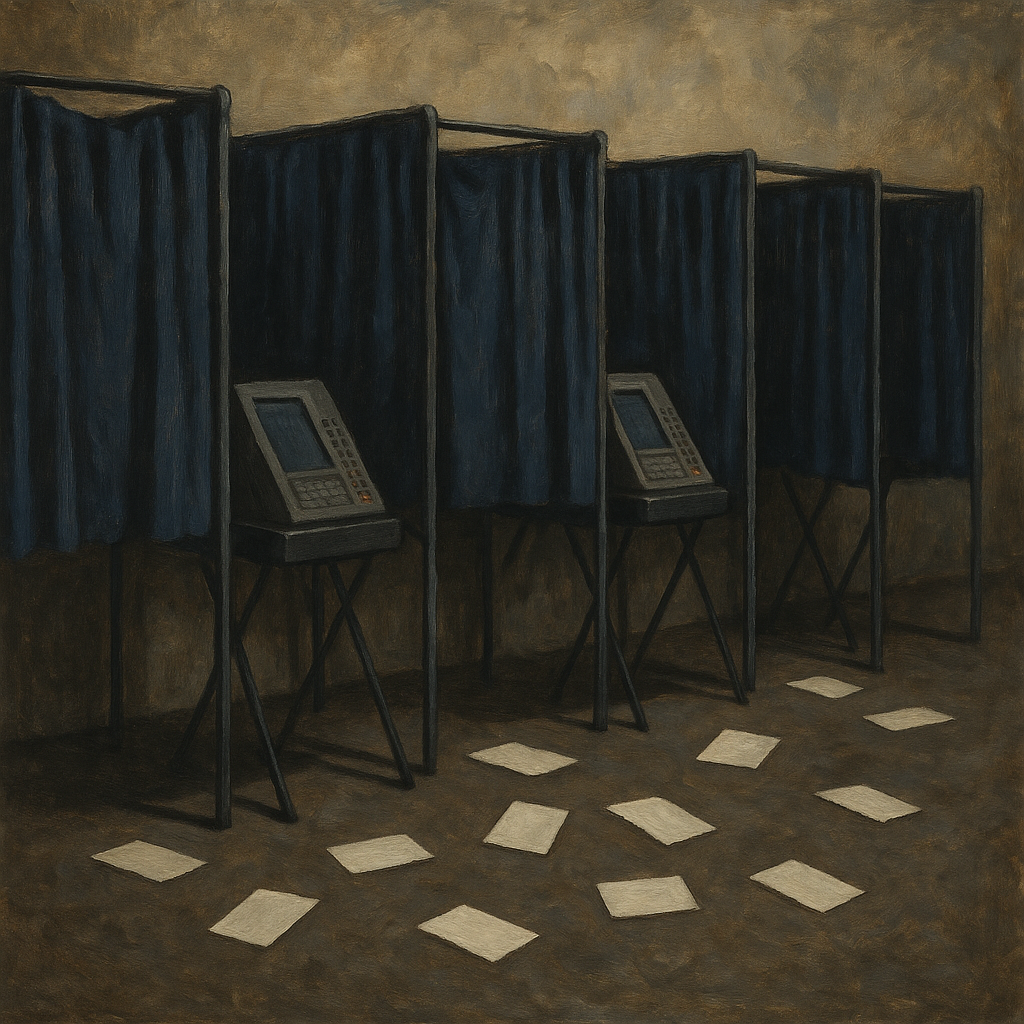Blissfully Lacking Vigilance
Low voter turnout and democratic engagement
If you’ve ever had a Middle Eastern taxi driver, you’ll know that they’re the most tapped in and in tune political and geo-political experts! Having grown up in Iran myself, I come from a culture where politics is discussed as casually, regularly and passionately as the weekend rugby.
When polling booths (having been rigged and become obsolete veneers of democracy), and democratic institutions fail to give people the political catharsis they deserve, rigorous political engagement happens at family gatherings and inside taxi rides instead!
Have you wondered why for some, like the caricature above, political engagement is effortless while for others, it’s a major burden at best, and simply irrelevant at worst?
My guess is that as a supporter of PILLAR, you were among the 33% of Kiwis who exercised their democratic right to vote in the recent local body elections.
The results tell a sobering story:
This election recorded the lowest turnout in 36 years.
In Auckland, only 25% of eligible voters participated, meaning 75% did not bother.
Around 200 positions went entirely unopposed.
Ministers, local body politicians and media outlets have been sounding the alarm suggesting something needs to change. Amongst the proposals are, changing funding models, allowing in person voting, digital voting, removing barriers to vote and even adding barriers to vote!
But as one commentator put, this is not a problem of accessibility, rather it is ‘a problem of value’. Of those around you who did not vote (not you of course ), I suspect it wasn’t because the process was too difficult. It was because apathy and indifference cast the deciding vote.
So what does this low turnout say about our relationship to democracy?
Are we like the children of a wealthy father who, enjoying a great inheritance, fail to prepare for the real world, soon to bear the consequences of our irresponsible citizenship?
The old adage reminds us: eternal vigilance is the price of freedom. But what does that really mean?
Those who came before us have given us a great and powerful tradition of democracy and freedom - they did so out of the ashes of tyranny. Their vigilance was forged in hardship and distrust of unchecked power. We, by contrast, have become the spoiled, blissfully ignorant of the corrupting nature of power, assuming that political decay is a problem for others somewhere else.
“After all, I live in democracy, and as long as I can vote,” we tell ourselves, “then I’ll not have to worry about much”.
We take comfort in the fact that we could vote if we had to, and that our institutions would fall into line when needed – but so far so good so why bother!
We often hear that we live in an age of distrust in institutions. Yet when voter turnout is this low, I wonder if the opposite is true: are we actually too trusting?
Have we become blissfully lacking in vigilance?
The truth is that our political institutions are only as strong as the people who uphold them. They are not buildings or statutes. They are individuals. People like you and me.
But, the reality is that our political institutions are only as strong and effective as the traditions, culture and individual people who embody them.
Our institutions are not buildings, they are not laws, they are individual people. Like you – like me.
Here in New Zealand, as an Iranian writer once told me, we’ve inherited a remarkable tradition of democracy, built on strong institutions and vigilant citizens. At PILLAR, we are determined to preserve that inheritance. And the first step in doing so is engagement.
Here in New Zealand - the Iranian writer will tell you - we have a great and blessed inheritance of democracy built on the shoulders of strong institutions, honourable and vigilant individuals. At PILLAR we stand to preserve New Zealand’s inheritance of freedom, and the first step to doing this is engaging!
Apathy toward democracy creates an opening for those who seek to undermine it.
PILLAR exists to encourage and equip people like you, to step forward, to live out responsible citizenship in your home, community, and nation.
If we skip the work of responsible citizenship in our daily lives, we - like the aforementioned taxi driver - risk becoming experts in global politics, but strangers to our own democracy.
Thank you for being engaged, it matters more than you might know.





